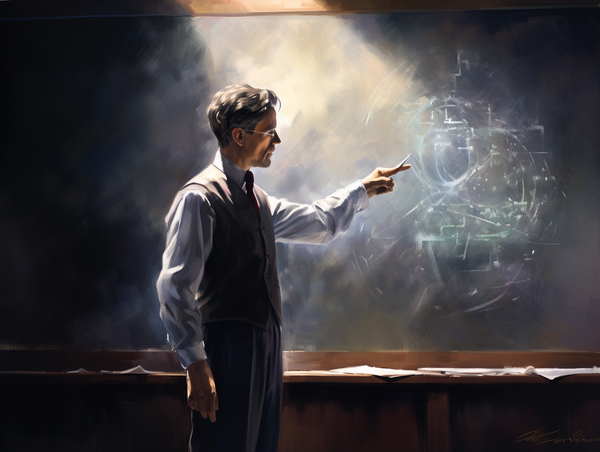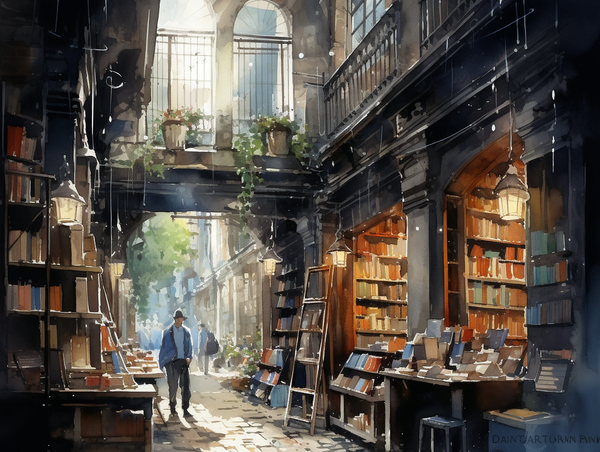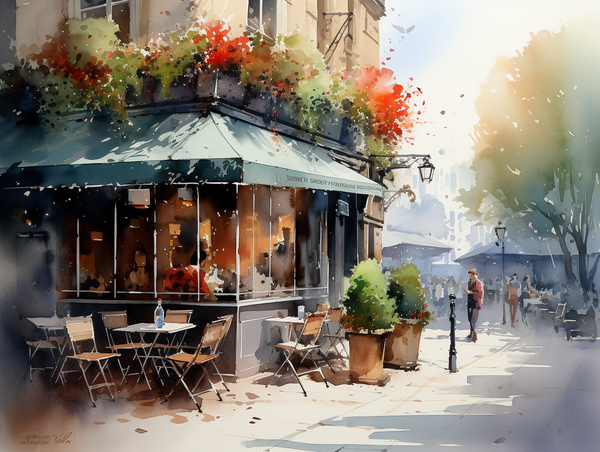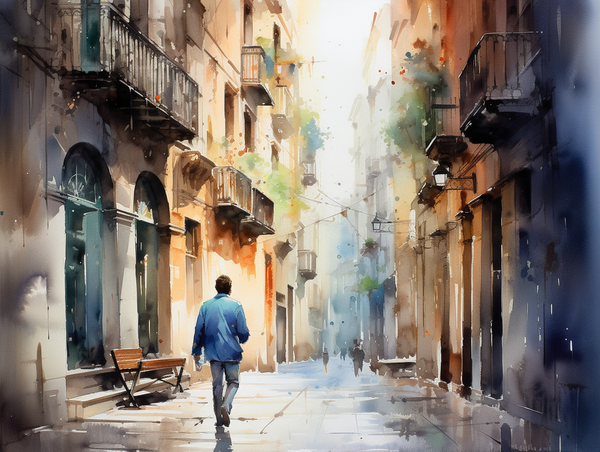Falling into life
Here's to falling into things. To the wisdom of allowing ourselves to be surprised by paths we never thought to seek.
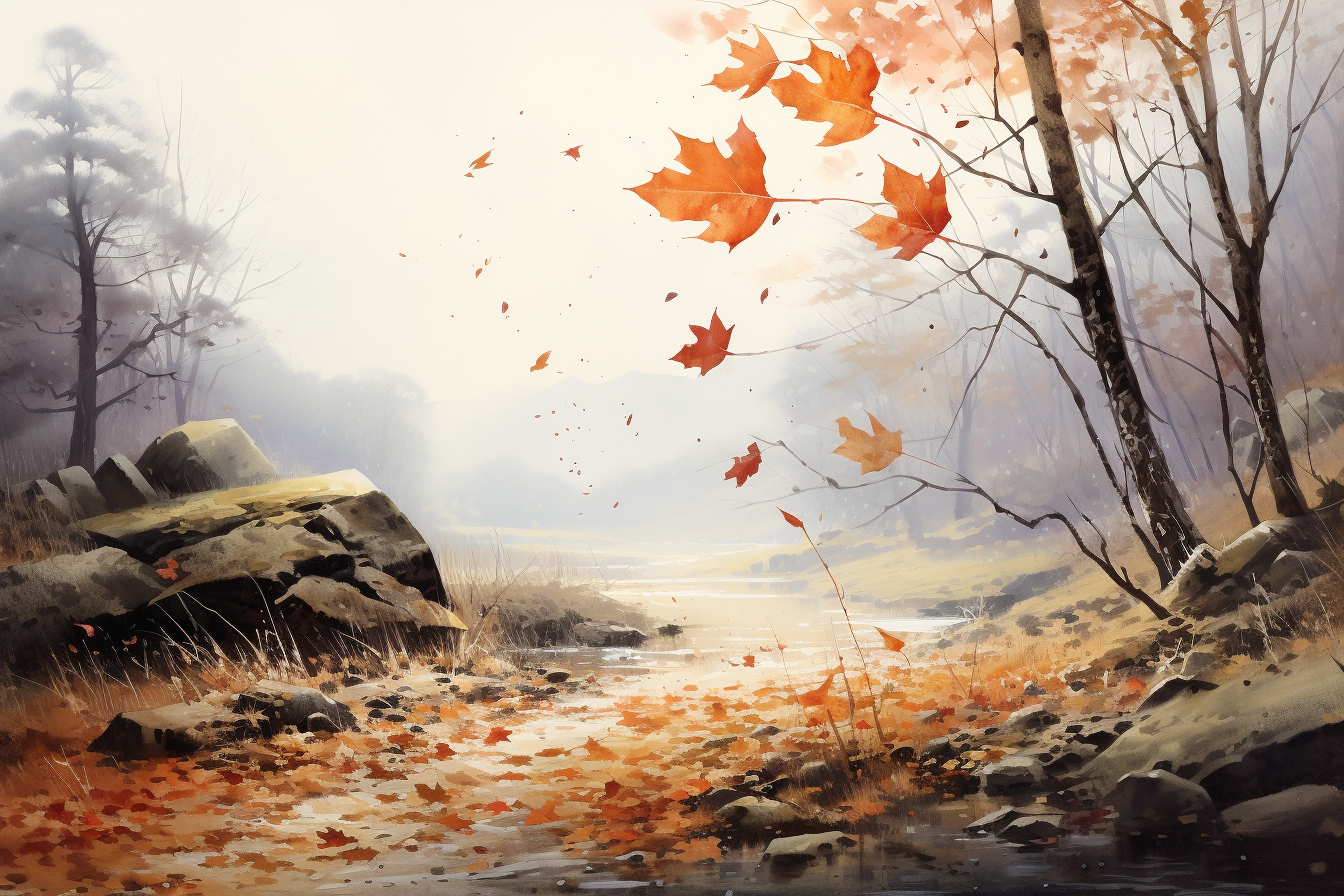
There exists, somewhere between intention and surrender, a peculiar truth about human existence. We rarely arrive precisely where we aim. It is as if the universe possesses a gentle sense of humour, nudging our carefully plotted coordinates slightly askew.
Not enough for catastrophe but enough to serenade serendipity.
Consider the objects that currently orbit your daily rituals. For me: a chipped blue teacup inherited from my mom, a brass amulet I inherited from my dad , and a fragment of a seashell collected from a shoreline we visited when I was 10. These artefacts—mundane when isolated, profound in accumulation—form the constellation of my life.
Why a tea cup? It "Just Happened".
We construct elaborate mythologies of agency and intention, imagining ourselves as architects of our destiny. Yet when pressed to explain the most meaningful elements of our lives—our vocations, our companions, our revelations—we often resort to phrases like "it just happened" or "I fell into it."
Years ago, I abandoned my engineering studies after becoming entranced by the perfect absolution of music. It wasn't logical—engineering was prestigious, practical, and aligned with my parents' expectations—but it was music which taught me to see the world through different eyes. I did not plot this journey; I merely "fell into it".
We are taught to speak of our lives in terms of achievement and acquisition—what we've accumulated, accomplished or overcome. But what if we measured our existence by what we allowed? The diversions we embraced or the accidents we welcomed ?
The chances we collaborated with.
There's something so profound in this notion of collaborating with chance. Not passive submission to whatever comes, but active participation in the dialogue between intent and circumstance. Like improvising musicians, notice structures and themes and respond to unexpected variations with curiosity over resistance. Foresee what's coming and when it arrives be ready to engage with our muscle memory, much like the Norwegian concept of "vardøger" where the sound of a person arriving is heard before they physically appear.
Footsteps on the stairs, a door opening, the rustle of a coat being removed—all preceding the actual arrival by minutes. Scientists dismiss it as acoustic hallucination, but what if it was time briefly folding upon itself, allowing us a glimpse of what's about to come?
Perhaps our intuition, functions in a similar manner. The future casting subtle echoes, guiding us toward destinies we cannot yet comprehend but somehow recognise.
The mathematician Benoit Mandelbrot discovered that chaotic systems contain hidden patterns—fractals—that repeat across scales. Examine a coastline from space, then from an airplane, then while standing on the shore, then through a microscope examining a grain of sand, and similar patterns emerge at each level of magnification.
Our lives often operate according to similar principles. What appears as random chance may reveal itself as part of an intricate pattern too vast for us to perceive while embedded within it. So, while we may chart the general direction of our journey, the most meaningful coordinates are often discovered rather than determined.
Alexander Fleming didn't set out to discover antibiotics; he noticed something unexpected in a contaminated experiment most would have discarded.
If you ask the Japanese they would explain its likeness with the concept of "Ma" - the pause between two musical notes. That brief interlude of silence which gives music its soul and flavour . Absence is not always a lack of substance but a positive element with its own significance.
Therefore, contrary to popular perception the most sophisticated skill we can develop is probably not the ability to execute intentions flawlessly, but the capacity to recognise significance when it appears in unintended forms. To distinguish, amid the noise of existence, the particular notes that resonate with our unique composition.
Can you establish how many influences from your past continue to shape your present? Conversations half-remembered, books whose details you've forgotten but whose essence altered your thinking, chance encounters that subtly redirected your path? We are constantly being formed by forces we barely recognise and illuminated by distant sources we cannot name.
The most accurate map of life would actually include notations like , "here lies the territory I've explored thoroughly", "here are regions I understand" and beyond—"vast expanses awaiting discovery, connections not yet made, meanings not yet revealed."
So here's to falling into things.
To the objects that mysteriously become significant. To the unplanned encounters that reshape trajectories. To the wisdom of sometimes letting the map melt, allowing ourselves to be surprised by paths we never thought to seek.
I write ‘cos words are fun. More about me here. Follow @hackrlife on X or subscribe to my blog

